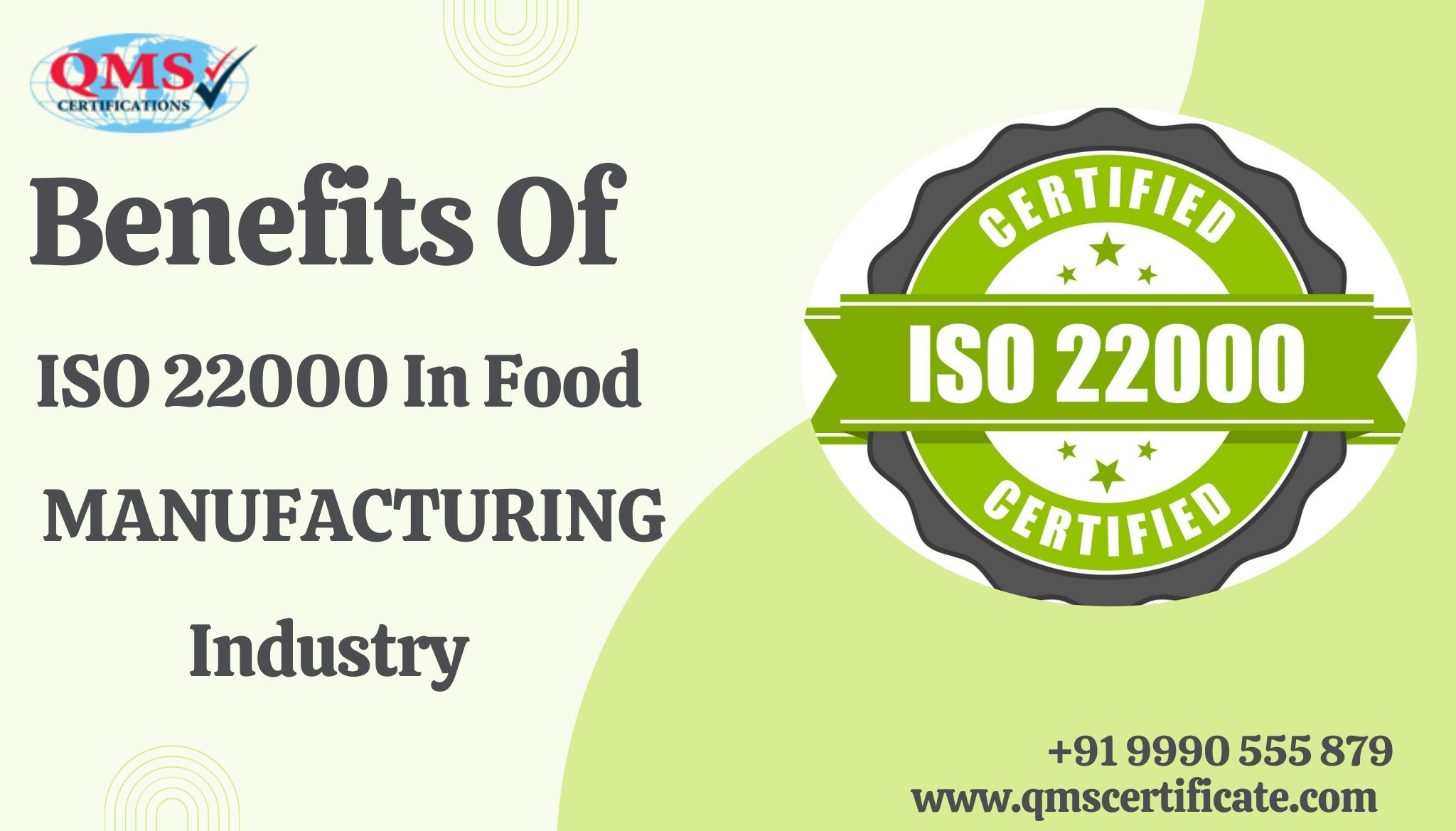Benefits Of ISO 22000 In Food Manufacturing Industry

1. Enhanced Food Safety
Implementing ISO 22000 helps food manufacturers identify, assess, and control food safety hazards throughout the production process, leading to safer food products for consumers.
2. Compliance with Regulations
ISO 22000 compliance ensures that food manufacturers meet regulatory requirements related to food safety and quality. This helps prevent legal issues, fines, and product recalls.
3. Improved Efficiency
By establishing standardized processes and procedures, ISO 22000 can streamline operations, reduce waste, and optimize resource utilization, leading to increased efficiency and cost savings.
4. Reduced Risks
ISO 22000 helps identify and mitigate risks associated with food safety hazards, contamination, and product recalls, protecting both consumers and the reputation of the food manufacturer.
5. Enhanced Market Access
ISO 22000 certification enhances market access by demonstrating a commitment to food safety and quality, facilitating trade agreements, and opening doors to new markets where certification is required or preferred.
6. Consumer Confidence
ISO 22000 certification instills confidence in consumers, assuring them that the food manufacturer follows international standards for food safety and quality management, leading to increased brand loyalty and customer satisfaction.
7. Supplier Relationships
ISO 22000 promotes trust and transparency in supplier relationships by ensuring that suppliers adhere to the same rigorous standards for food safety and quality, leading to better collaboration and supply chain management.
8. Continuous Improvement
ISO 22000 emphasizes continuous improvement through regular reviews, audits, and updates to the food safety management system, helping food manufacturers stay ahead of emerging risks and evolving industry best practices.
9. Competitive Advantage
ISO 22000 certification can provide a competitive edge in the marketplace by differentiating a food manufacturer from competitors and demonstrating a commitment to excellence in food safety and quality management.
10. Risk Management
ISO 22000 enables food manufacturers to proactively identify and manage risks associated with food safety hazards, supply chain disruptions, and other potential threats, minimizing the impact on operations and reputation.
Conclusion
In conclusion, ISO 22000 emerges as a pivotal asset within the food manufacturing industry, providing a comprehensive framework that enhances food safety, regulatory compliance, and operational efficiency. From mitigating risks to fostering consumer confidence and facilitating market access, its multifaceted benefits underscore its indispensability in today’s dynamic market landscape. By embracing ISO 22000, food manufacturers not only fortify their brand reputation but also gain a competitive edge, driving continuous improvement and sustainable growth. As a beacon of quality and safety, ISO 22000 reaffirms the industry’s commitment to delivering superior products while safeguarding the well-being of consumers worldwide. In essence, ISO 22000 serves as a cornerstone, empowering food manufacturers to navigate challenges, foster innovation, and uphold the highest standards of excellence in every aspect of their operations.